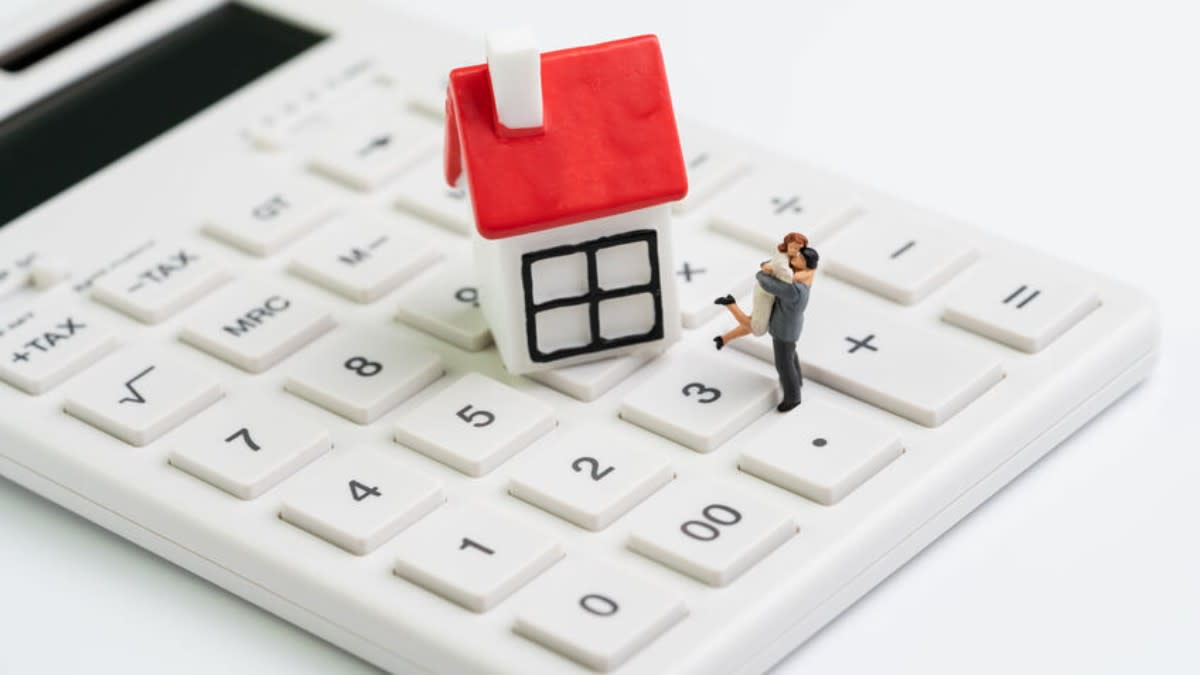Marriage or Mortgage First? 5 Key Considerations for Young Couples in Singapore

It’s common for people in western countries to live with their romantic partners before or without getting married. But in Singapore, marriage and buying a home often occurs concurrently.
In fact, many young Singaporean couples apply for BTO flats early in their relationships, committing to buying a home together way before the marriage occurs, due to the long BTO completion waiting times. While we’ve argued some may say it is unromantic to do a “BTO proposal” in Singapore, we understand the practical reasons behind it.
Whether you should choose to marry before taking on a mortgage, or buying a home before walking down the aisle, they are personal decisions you should make based on your own needs. Still they’re huge financial commitments, so it’s wise to plan before choosing which to do first. We provide a breakdown for you
Marriage or Mortgage First? Cost Breakdown in Singapore
Cost of a BTO Flat in Singapore
Property | 4-room HDB BTO flat (Kallang Horizon; Kallang/Whampoa November 2022 BTO launch) |
Price | $509,000 (starting from) |
HDB loan (assuming 80% LTV) | $101,800 down payment; $407,200 loan (excluding interest); $1,847 estimated monthly repayment (25-year loan tenure) |
Bank loan (assuming 75% LTV) | $127,250 down payment; $381,750 (excluding interest); $2,060 estimated monthly repayment (25-year loan tenure, with interest rate at 3.6%) |
Other costs | $10,000 (estimate for expenses like legal fees, stamp duties, renovation, home insurance, property tax, etc) |
The Singaporean couple’s ‘starter-pack home’ is a 4-room BTO flat. In 2020, Singaporeans aged 25 to 34 comprised 60% of flat owners who bought a 4-room flat.
Let’s say you successfully balloted for a 4-room Kallang/Whampoa flat during the Nov 2022 BTO launch. If you decided to take an HDB-granted loan, with an 80% Loan-to-Value (LTV) housing loan, you’ll need to pay a $101,800 down payment (which can be paid for using your CPF OA savings). This doesn’t include other costs such as legal fees and stamp duty fees.
Alternatively, if you take a bank loan, your upfront cost is higher, due to a lower LTV limit of 75%. This means a minimum down payment of $127,250, of which at least 5% must be in cash (that’s $25,450!).
Of course, there will be long-term monthly mortgage repayments to think about as well. But since this article discusses timing wedding costs with the large property expenses, we will focus on the upfront costs.
Cost of Marriage in Singapore
Wedding Component | Average cost |
ROM & Solemnization and Venue booking | $2,500 to $7,000 |
Catering/lunch reception (for 100 to 150 guests) | $1,700 to $4,000 |
Wedding Banquet (for 100 to 150 guests) | $16,000 to $40,000 |
Engagement Ring | $2,000 to $6,000 |
Wedding Bands | $400 to $6,000 |
Bridal package | $3,000 to $6,000 |
Actual day photography | $700 to $2,500 |
Actual day videography | $1,800 to $3,600 |
Pre-Wedding Photography & Videography | $350 to $2,200 |
Makeup artist & hairstylist | $400 to $1,000 |
Bridal Party Attire & Makeup | $500 to $1,000 |
Flowers | $500 to $3,000 |
Total | $29,850 to $82,300 |
For most couples, their wedding day is a magical celebration of their love which happens once in a lifetime. Not to put a damper on the joyous mood, but wedding costs are some of the highest which couples will incur during their time together.
The table above shows the costs a couple may incur for a mid-range price wedding. We’re no experts on weddings, so we adapted the above table from The Wedding Vow SG. We’ve also excluded some of the variable and optional costs from the tabulation, i.e. photo booth, car rental, etc.
Typically, wedding banquets account for the bulk of wedding costs. Assuming you cater for up to 150 guests, your banquet can cost up to $40,000. Other costs include wedding photography and bridal packages, and your wedding rings. These vary depending on your number of gown changes, the type of wedding ring, the location of your wedding photoshoot, etc.
Depending on how big of a party you want to throw, you can expect to spend between $29,850 to $82,300 on average just for your wedding!
So, should you spend your money on your wedding or buy a home first?
4 Marriage or Mortgage First Considerations in Singapore
1. Long BTO Waiting Times
COVID-19-related disruptions to the construction of housing developments mean the wait times for certain BTO flats could be up to seven years. This is the main reason many couples in Singapore choose to apply for a BTO flat before holding a grand wedding ceremony.
Unmarried couples are eligible to apply for a BTO under the Fiancé-Fiancée Scheme, and various HDB grants and subsidies catered for married couples, as long as you produce your certificate of marriage within three months after your BTO flat is completed.
For example, couples whose average household monthly income doesn’t exceed the $9,000 income ceiling can enjoy $5,000 to $80,000 in the Enhanced CPF Housing Grant (EHG). Younger couples who apply for a BTO flat while studying or serving National Service (i.e. without income) may be eligible for the Deferred Income Assessment, which allows you to assess your income closer to the key collection date.
2. HDB Resale Flat Availability and Payment
The case seems pretty clear for couples keen on BTO flats: they’re just so much more convenient to apply for.
Unlike BTO flats that take a while to build, however, resale flats can change hands within months. The timing for buying a resale HDB flat is therefore more crucial: if you intend to get married and move into your new resale flat at the same time, all your expenses will be incurred around the same time.
Resale flats are also generally more expensive than BTO flats (their costs are not subsidised by the Government), although buyers are also potentially eligible for more grants, e.g. Proximity Housing Grant (PHG).
That means you must be prepared to pay for your wedding, as well as the upfront costs of purchasing the property, e.g., downpayment, renovations, furnishing, etc.
3. Private Properties Require Higher Downpayments
A Building Under Construction (BUC) (usually new launch projects) has a few years or months till completion. This means you may be able to make payments according to a progressive payment scheme, which staggers payments according to the construction progress. This way, your financial requirements may be more manageable.
If you buy a resale property, the same dilemma as buying a resale flat applies. It is ready immediately, which means you will need to cough up the upfront payments within the short timeline too.
It’s also noteworthy that not only does private property cost more, but you will have to take a bank loan, which has a lower LTV limit of up to 75%. This means that assuming you take the maximum 75% loan, you will still need to come up with a downpayment of at least 25%, of which at least 5% has to be paid in cash.
4. Where Can Married Couples Without Shared Property Stay?
However, say you decide to put your home purchasing plans on hold. The next question to ask is whether you’ll continue to stay with your parents or find a place to rent for the time being.
If you have the option of bunking in with your parents or in-laws until you have more savings to move out, then great. But let’s say that you decide to rent a home in the meantime, how much would that cost?
A quick search for 3-room HDB flat rental listings on PropertyGuru revealed asking prices ranging from $2,200 to $5,500. And that’s without factoring in any agent fees, utility bills and other expenses.
Conclusion: Don’t Rush to Marry or Buy a House First
When it comes to marriage or mortgage first, there are many considerations to this complex question. The best answer for you will depend on not just your finances, but your personal preferences and relationships as well.
While it seems the typical route for Singaporeans to buy a house first (especially BTO flats) and marry later, it is definitely something we don’t recommend rushing into.
There are considerable risks involved when you make a home purchase before getting married. If things go south and you happen to break up with your partner (touch wood!), you’ll have to forfeit the property you intended to purchase together, and this could lead to hefty penalties, e.g. option fees, stamp duties, and the downpayment.
We say, it’s best to choose the route you’re most comfortable with and then plan the finances for it. If you feel ready in your relationship to apply for a home together and your finances allow it, go for it!
Don’t forget to also talk through some important financial considerations on purchasing a home as an unmarried couple, such as deciding who contributes what to the household, the percentage of CPF funds each person is contributing to the downpayment/mortgage repayments of the flat, and who the legal owner of the home should be. If left unsorted, these issues could potentially lead to conflict and possible legal implications, should the relationship sour over time.
If you feel pressured and think you want to wait it out, that’s okay. You can always seek alternative arrangements while waiting for the right time.
You can consider staying with your parents or in-laws, or if you are waiting for the completion of your BTO flat, you can still rent a flat to start your own family in the meantime. Under the Parenthood Provisional Housing Scheme (PPHS), married or engaged couples can rent a flat while waiting for their uncompleted flat booked under the HDB’s sales exercises.
Here’s wishing you and your partner or spouse all the best in your journey towards owning a new home! If you would like more guidance, whether it is to work out what property you can afford, compare mortgage rates, or simply seek specific advice for your unique situation, our friendly Mortgage Experts are ready to help.
Chat with us on Whatsapp Fill up an online form
Disclaimer: Information provided on this website is general in nature and does not constitute financial advice.
PropertyGuru will endeavour to update the website as needed. However, information can change without notice and we do not guarantee the accuracy of the information on the website, including information provided by third parties, at any particular time. Whilst every effort has been made to ensure that the information provided is accurate, individuals must not rely on this information to make a financial or investment decision. Before making any decision, we recommend you consult a financial planner or your bank to take into account your particular financial situation and individual needs. PropertyGuru does not give any warranty as to the accuracy, reliability or completeness of information which is contained on this website. Except insofar as any liability under statute cannot be excluded, PropertyGuru and its employees do not accept any liability for any error or omission on this website or for any resulting loss or damage suffered by the recipient or any other person.




